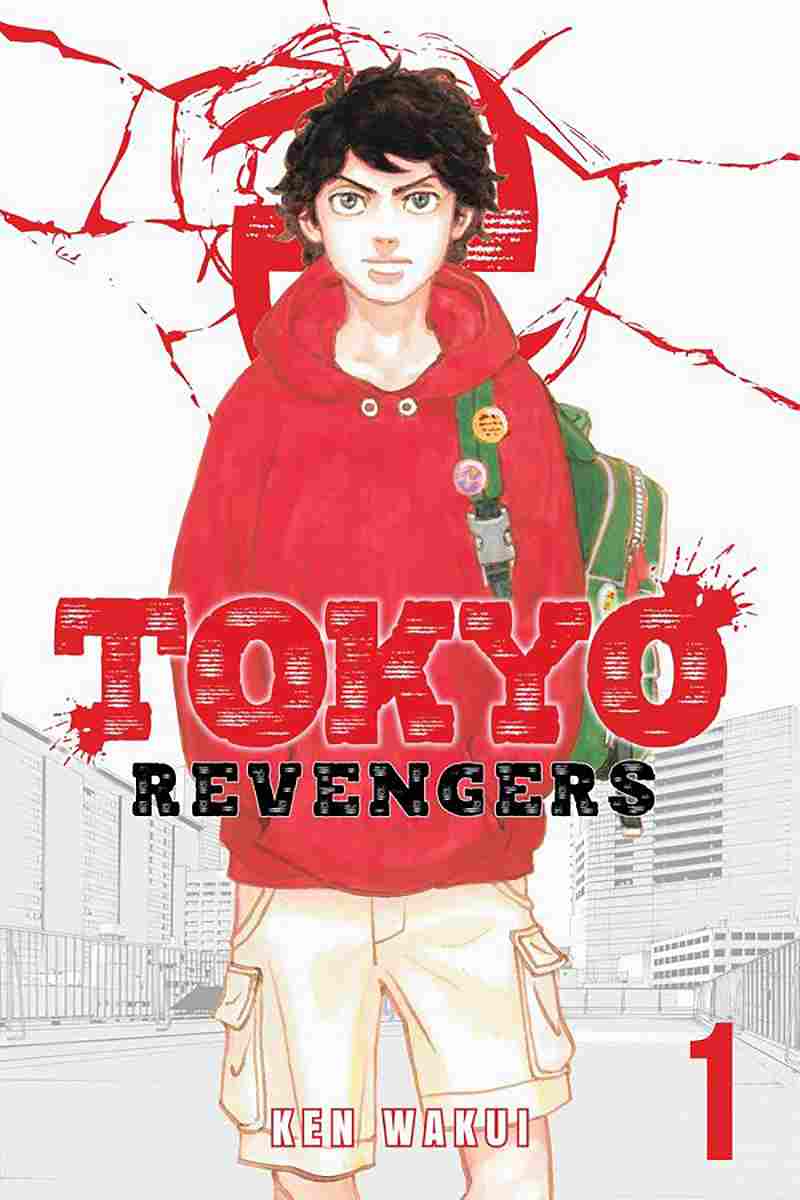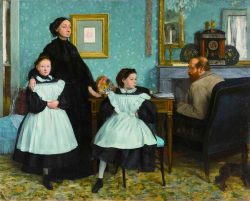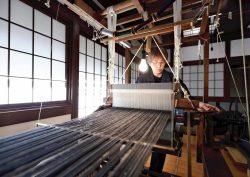‘Tokyo Revengers’ holds ‘yankee’ culture up as mirror of contemporary Japanese society

The cover of the first volume of the English-language e-book edition of “Tokyo Revengers.” This edition is currently available only outside Japan
10:30 JST, December 17, 2021
It was apparently around the mid-1980s that the word “yankee” took on a new meaning in Japan — a bad boy or girl — which has nothing to do with its general meaning of “American.”
Yankee boys were often delinquents who had their hair done in what they call a “regent” style, which is a combination of a ducktail (using a lot of hair wax) and a pompadour (with the bangs combed upward and raised high on the forehead). Many were members of bosozoku motorcycle gangs, and their best buddy was their motorbike.
If we regard “Shonan Bakusozoku” (1982) by Satoshi Yoshida as the first of the bosozoku manga, then the genre’s history spans almost 40 years. However, the popularity of bosozoku peaked in the 1970s, and the yankees mostly disappeared by the end of the 1990s.
That said, the bosozoku genre is still popular. “Tokyo Revengers,” the first huge hit within the genre in quite a few years, is proof.
When Volume 24 came out in September, the publisher, Kodansha Ltd., placed full-page advertisements in a national newspaper using 47 different designs for each of the 47 prefectures in Japan, with each featuring a different character from the manga. Miniature replica cards of all 47 ads were distributed to bookstores and randomly given as free gifts to those who purchased the manga in book form (one card per purchase).
The promotion caused an unexpected furor, with young women fans rushing to bookstores across the country to collect the cards depicting their favorite characters.
Production of an anime version and a live-action film added to the popularity, and total sales of the book editions surged from 10 million copies to 40 million, including e-book editions, in just six months.
That’s why the situation is considered similar to the “Demon Slayer: Kimetsu no Yaiba” boom.
In the story, the protagonist, Takemichi Hanagaki, is a dull 26-year-old with a part-time job. He learns on the TV news that his former girlfriend, Hinata Tachibana, died after getting caught in a clash involving a criminal organization known as the Tokyo Manjikai, or To-Man for short. To-Man began as a teenage yankee motorcycle gang, and Takemichi was sometimes beaten up by its members.
Soon after learning of Hinata’s death, Takemichi is run over by a train at a station. He ought to have died, but when he comes to, Takemichi finds himself as a teenager, 12 years younger. Hinata is still alive, and to save her life, Takemichi decides to work his way up to the top rank in To-Man.
I’ve introduced manga involving time travel in this column several times, perhaps more than my share. But combining time travel and the yankee aspect is an innovative idea.
I must confess that the sci-fi element in this manga is questionable at times. It’s also a total waste that the supernatural element — time travel — is used only to stop clashes between opposing bosozoku groups.
Still, as a yankee manga, “Tokyo Revengers” is an undeniable masterpiece.
First, it’s such a classic development that Takemichi, not at all a strong fighter, uses only his kiai, or spiritual strength, to become a charismatic leader basking in the respect of his underlings.
Then, there’s the wonderful cast of side characters galore on both sides of the fighting, such as the handsome Manjiro Sano, nicknamed Mikey, the To-Man head with immense darkness inside him, and Kisaki, a Machiavellian who leads To-Man down an evil path. Every character has a delightfully unique and clearly defined personality.
The design of toppuku, the uniform of each bosozoku group, is attractive and has a special cosplay allure. No wonder this manga is so popular with young women.
Speaking about yankees, psychiatrist Tamaki Saito said: “The yankee culture has values shared by a majority of Japanese people. It’s a combination of various factors, such as tacky costumes and aesthetics; the concepts of kiai and kizuna, or spiritual ties; and the ethics of valuing family, friends and colleagues.”
Saito also pointed out that there is a certain femininity hidden deep down in the yankee culture, which looks like an offshoot of a macho culture at first glance.
All of these factors are clearly displayed in “Tokyo Revengers” to the extent that it can almost be interpreted as exemplifying what it is to be Japanese in 2021. It’s surprising this manga has not been discussed by critics as enthusiastically as “Demon Slayer” was last year. Could it be because it’s about yankees?
— Kanta Ishida, Yomiuri Shimbun Senior Writer
Top Articles in Culture
-

BTS to Hold Comeback Concert in Seoul on March 21; Popular Boy Band Releases New Album to Signal Return
-

Director Naomi Kawase’s New Film Explores Heart Transplants in Japan, Production Involved Real Patients, Families
-

‘Jujutsu Kaisen’ Voice Actor Junya Enoki Discusses Rapid Action Scenes in Season 3, Airing Now
-

Tokyo Exhibition Offers Inside Look at Impressionism; 70 of 100 Works on ‘Interiors’ by Monet, Others on Loan from Paris
-

Traditional Japanese Silk Hakama Tradition Preserved by Sole Weaver in Sendai
JN ACCESS RANKING
-

Japan PM Takaichi’s Cabinet Resigns en Masse
-

Japan Institute to Use Domestic Commercial Optical Lattice Clock to Set Japan Standard Time
-

Israeli Ambassador to Japan Speaks about Japan’s Role in the Reconstruction of Gaza
-

Man Infected with Measles Reportedly Dined at Restaurant in Tokyo Station
-

Videos Plagiarized, Reposted with False Subtitles Claiming ‘Ryukyu Belongs to China’; Anti-China False Information Also Posted in Japan

























